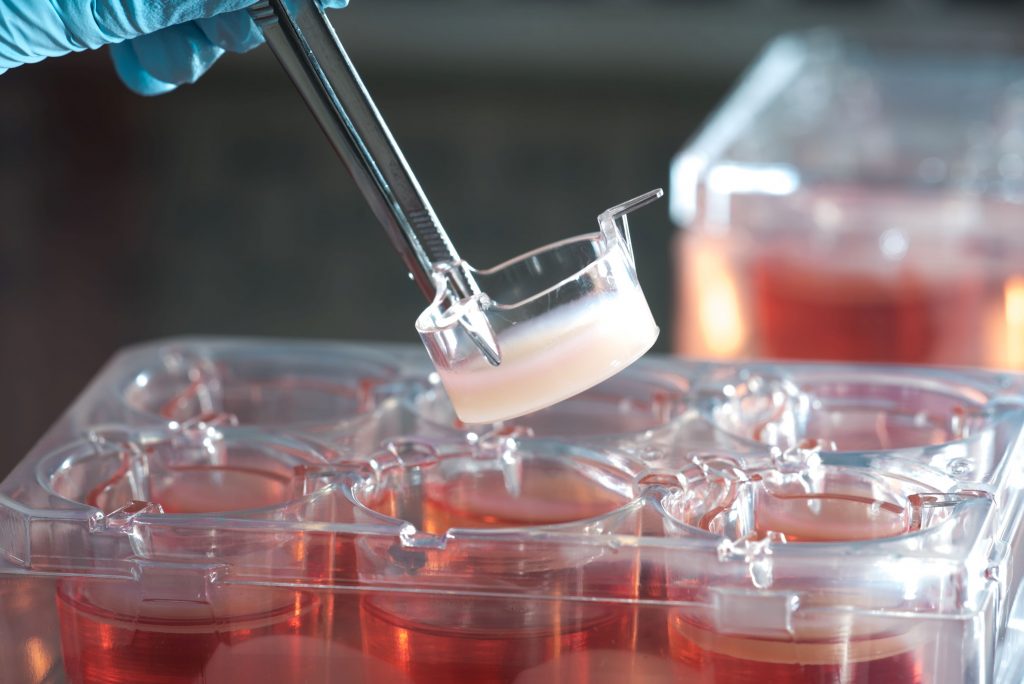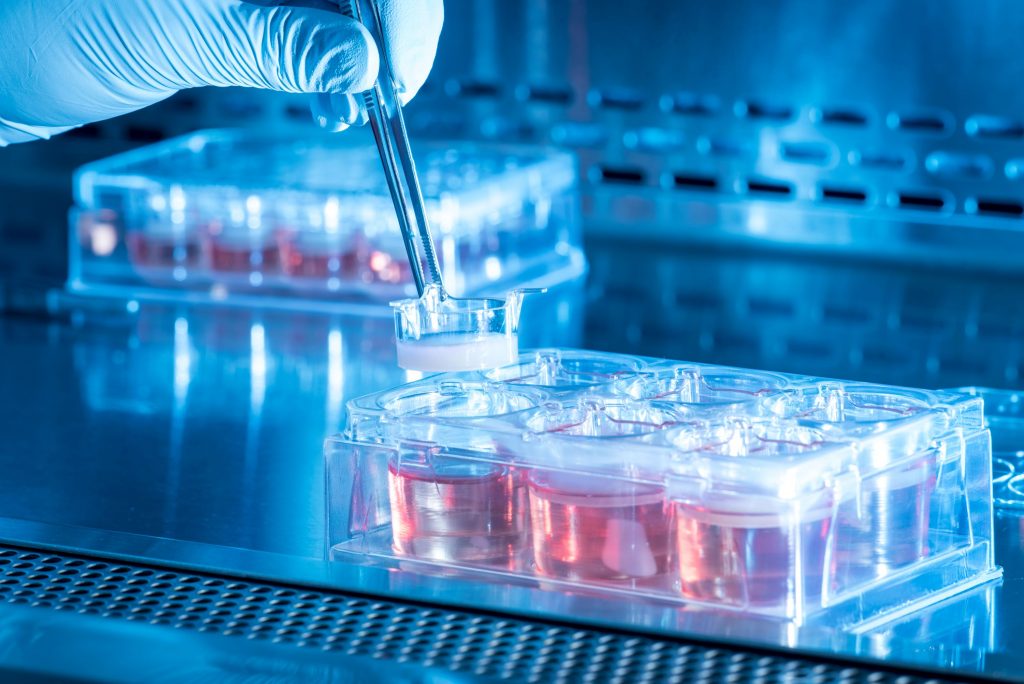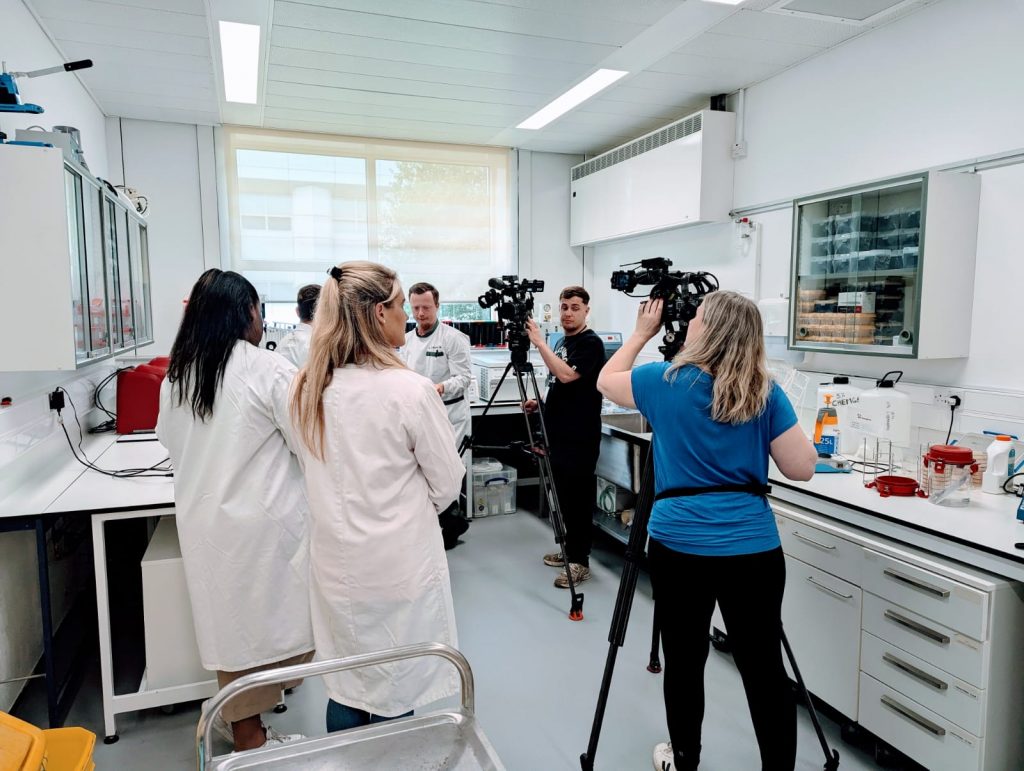Meet the Occupier: Labskin
We recently welcomed Labskin Limited to our campus! Labskin is a specialist in human skin micro-biology and produces a lab-grown human skin equivalent which mimics the real thing.
The lab-grown skin is the same thickness as human skin and is used to test skincare, cosmetics, personal care and pharmaceutical products across the globe, acting as a replacement to traditional animal testing.
Not only is Labskin a pioneer in skin science, but it is a truly local business as it was founded at the University of Leeds and has only ever operated within Yorkshire. We spoke with Dr Nicola Kingswell, Scientific Director at Labskin to find out more…

Can you tell us a bit about Labskin and what you do?
“We construct lab-grown skin for a variety of clients in cosmeceuticals, skincare, healthcare, personal hygiene, wound care and pharmaceuticals. The companies we have worked with include the likes of Estée Lauder, Unilever and L’Occitane – and that’s just the start of a long list!
“What sets Labskin apart from other lab-grown skin models is that, just like human skin, our model has a dry top surface that allows scientists to put microbes and fungi from the skin microbiome onto it. This means scientists can look at the effect of the products on both the skin and microbiome. It’s exciting as not many scientists use 3D models of this type.
“Our Labskin model is as effective as testing on real-life human skin, and means that scientists can use it to test things like anti-dandruff, anti-acne and microbiome friendly products.”
Can you tell us a bit about the Labskin team?
“There’s currently seven team members onsite and we’re planning on recruiting more people soon, so we can expand our services. We’re mostly scientists but we also cover the operations and project management of the business.
“The team does everything from growing the Labskin constructs, developing the microbiome and performing all the testing. The team are cross trained to cover everything we need which allows us to deliver seamless end-to-end completion of studies for our clients.”

Can you tell us more about the services you’re planning to introduce?
“We’re really proud to be launching a new model made with melanocytes. These are cells which produce the pigment melanin and gives our skin its colour. The new Labskin-M is being validated with melanocytes from donors of different ethnic backgrounds which means we can create Labskin 3D models which mimic different ethnicities.
“The Labskin-M is particularly important as several scientific publications have shown that skin of different ethnicities have different microbiome profiles. There are loads of contributing factors that cause varying microbiome profiles, with the quantity of melanin being a key one.
“Using melanocytes means we can look at products specifically designed for ethnic skin types to allow for a more personalised, inclusive approach to skin research in the skin care, cosmetics and pharmaceutical sectors. We’re planning to use Labskin-M to look at the effects of sunscreen on different ethnic skin types and we’re also hoping to design a melanoma model for testing skin cancer treatments too.”
What’s it been like since joining the campus? Highlights?
“In less than six months, we’ve grown our team to a total of seven, set up three new labs, grown lots of our Labskin product and we’ve been busy working on client projects!
“One really exciting project we were recently involved in was a feature for BBC’s Morning Live! The piece was on adult acne and my colleague Bart and I caught the train from York to London, where we swabbed the microbiome of two ‘skinfluencers’ in Kings Cross station. We got the train straight back to York and transferred their microbiomes onto Labskin. It was great seeing the feature go live and have the opportunity to show the effects of anti-acne products on real, volunteer skin microbiomes.”

What’s your favourite thing about being based at YBC?
“It has to be the setting. Visitors are always amazed at the size of the campus when they visit. I personally love the lake and all the wildlife, and the whole team are always on the lookout for interesting creatures. Watching the sand martins recently has been amazing, as well as spotting swallows, wagtails and rabbits across campus.”
How important is it that Labskin is based in Yorkshire?
“Very. As a true Yorkshire woman born and bred, I burst into flames if I spend too long in another county. Honestly – it was incredibly important to me to stay based in Yorkshire, as too often biotech companies are located in the golden triangle of London – Cambridge – Oxford.
“Labskin was developed in Yorkshire at the University of Leeds, and the various iterations of it have always been in the region. The whole team is based here, and we have no intentions of leaving!”
What’s next for the Labskin team?
“We want to continue growing, innovating and leading in skin science. We’re adding some new products to our portfolio including monolayer assays, reconstructed human epidermis tests for irritation and sensitisation, as well as more skin disease mimics such as atopic dermatitis, psoriasis and eczema.
“We’re also recruiting for a business development manager to help us grow and we have a senior histology specialist joining us in the new year. Then in April 2025, we’re heading to Amsterdam to exhibit at InCosmetics, one of the world’s biggest trade shows for organisations working in cosmetics and skincare. So, there’s plenty of exciting things in the pipeline to look forward to!”
For more information about Labskin Limited, please visit its website.
